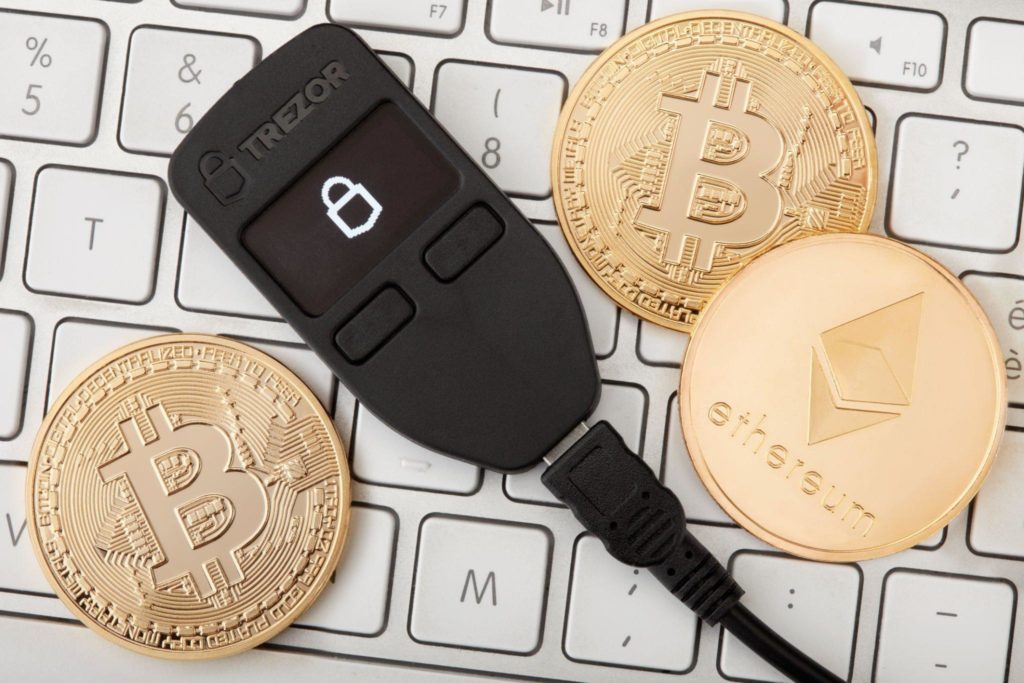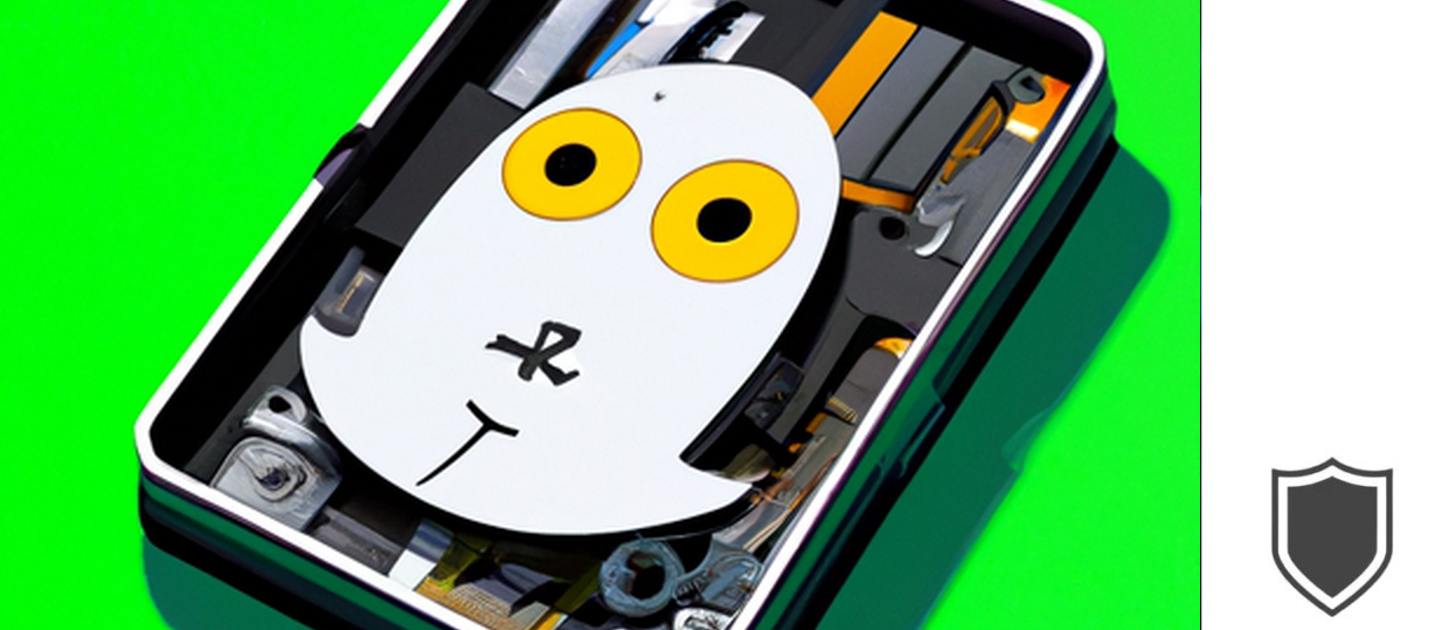Understanding the importance of crypto hardware wallets is crucial for investors who want to protect their digital currencies. These devices are designed to store your private keys offline, effectively safeguarding them from hacking and other security risks. Moreover, hardware wallets are significantly more user-friendly than other types of wallets, making them a great option for newcomers to the cryptocurrency sphere.
When it comes to choosing one of the best hardware wallets for crypto, there are several factors to consider. Compatibility and user experience, transactions and fees, and advanced features are just a few of the things you should look for. In this article, I will be discussing some of the most popular hardware wallets on the market, as well as their pros and cons. By the end of this article, you should have a better understanding of which hardware wallet is right for you.
Table of Contents
Key Takeaways
- Hardware wallets for crypto are physical devices that store your private keys offline, making them a much more secure option than software wallets or exchanges.
- When choosing one of the best hardware wallets for crypto, it is important to consider factors such as compatibility, user experience, transactions and fees, and advanced features.
- Some of the most popular hardware wallets on the market include Ledger Nano X, Trezor Model T, and SafePal S1.
Understanding Crypto Hardware Wallets
In this section, I’ll explain what a hardware wallet is, how it works, and why it’s considered the most secure way to store cryptocurrencies.
A hardware wallet is a physical device that is used to store cryptocurrencies. It is a type of crypto wallet that is designed to keep your private keys offline and away from potential hackers. Private keys are what allow you to access your crypto assets, so it’s crucial to keep them secure.
When you use a hardware wallet, your private keys are stored on the device itself, rather than on a computer or mobile device. This means that even if your computer or phone is hacked, your crypto assets will still be safe. Hardware wallets also typically require a PIN code or passphrase to access your crypto assets, adding an extra layer of security.
There are many different types of hardware wallets available, each with its own set of features and benefits. Some of the most popular brands include Ledger, Trezor, and SafePal. When choosing a hardware wallet, it’s important to consider factors such as the number of cryptocurrencies it supports, its ease of use, and its price.

Importance of Security in Crypto Wallets
The rise of cyberattacks and vulnerabilities in the digital world has made it crucial to ensure that my private keys are secure. Using one of the best hardware wallets for crypto is a great way to keep my private keys safe from hackers and maintain control over my cryptocurrencies. Investing in the best hardware wallets for crypto becomes indispensable.
The private keys are the most important aspect of a crypto wallet, and they are used to access and transfer funds. Using the best hardware wallets for crypto ensures that if your private key is compromised, you risk losing all your digital assets. This is why it is crucial to ensure that your private keys are stored securely and not accessible to anyone else with the best hardware wallets for crypto.
Hardware wallets provide an extra layer of security by keeping your private keys offline, away from the internet. This makes it virtually impossible for hackers to access your private key, even if they gain access to your computer or phone. In addition, most hardware wallets require a PIN or two-factor authentication (2FA) to access your funds, adding another layer of security.
Popular Hardware Wallets
As someone who has been in the crypto space for a while, I’ve come across a number of hardware wallets that have stood out as being popular and reliable. Here are some of the best hardware wallets for crypto in the market today:
Ledger
The Ledger Nano X is a widely-used hardware wallet that is known for its security features and user-friendly interface. It supports a wide range of cryptocurrencies, including bitcoin, and allows for easy management of multiple accounts. The device is compact and portable, making it easy to carry around.
Trezor
The Trezor Model T is another popular hardware wallet that is known for its security and ease of use. It supports a wide range of cryptocurrencies, including bitcoin, and comes with a touch screen display that makes it easy to navigate through the device’s features. The device is also compact and portable, making it easy to carry around.
Coldcard MK4
The Coldcard MK4 is a hardware wallet that is known for its advanced security features and open-source software. It supports a wide range of cryptocurrencies, including bitcoin, and comes with a compact design that makes it easy to carry around. The device is also known for its user-friendly interface and customizable features.
These are just a few of the most popular hardware wallets in the market today. When choosing a hardware wallet, it’s important to consider factors such as security, ease of use, and compatibility with the cryptocurrencies you plan to store.
Compatibility and User Experience
When it comes to choosing one of the best hardware wallets for crypto for your cryptocurrency, compatibility and user experience are crucial factors to consider. As someone who has used various hardware wallets, I can confidently say that the best ones are those that offer a seamless experience across different devices and operating systems.
One of the things to consider is the connectivity options. Most hardware wallets come with a USB cable, which makes it easy to connect to a computer. However, some newer models also offer Bluetooth connectivity, which allows for wireless connections to mobile devices. This is especially useful for those who prefer to manage their crypto on-the-go.
Another important aspect of compatibility is the availability of mobile apps. Many hardware wallets now come with mobile apps that allow you to manage your crypto directly from your smartphone. This is particularly useful for those who want to keep track of their crypto while on the move.
In terms of user experience, a simple and intuitive interface is key. A hardware wallet with a touchscreen display makes it easy to navigate and manage your crypto assets. The touchscreen interface also allows for additional security features, such as PIN entry and two-factor authentication.
When it comes to operating systems, the best hardware wallets are those that are compatible with multiple platforms. This means that you can use the same wallet on Windows, Mac, Linux, and even mobile devices like iPhone and Android. This level of compatibility ensures that you can manage your crypto assets no matter what device you are using.
Overall, a hardware wallet that offers seamless compatibility and a user-friendly experience is essential for managing your cryptocurrency securely. Whether you prefer USB or Bluetooth connectivity, a touchscreen display, or a mobile app, there is a hardware wallet out there that will meet your needs.

Exploring Advanced Features
As an experienced user of hardware wallets, I have found that there are several advanced features that can greatly enhance the security and usability of your crypto assets. Here are some of the most notable features that I have found to be useful:
Multisignature Support
Hardware wallets that support multisignature functionality allow you to require multiple signatures to authorize a transaction. This can greatly enhance the security of your funds, as it requires the cooperation of multiple parties to move your assets. Many popular hardware wallets, such as the BitBox02 and the Ledger Nano X, support multisignature functionality.
Decentralized Finance (DeFi) Support
DeFi is an exciting and rapidly growing area of the crypto ecosystem, and many hardware wallets are now adding support for DeFi applications and protocols. Some wallets, such as the Coinbase Wallet, even offer built-in support for popular DeFi apps like Compound and Uniswap. If you are interested in participating in DeFi, be sure to choose a wallet that supports the relevant protocols and apps. Both the ledger and trezor devices support DeFi.
Compatibility with Popular Blockchains
Different hardware wallets support different blockchains, so it’s important to choose a wallet that supports the specific blockchains that you are invested in. Most hardware wallets support popular blockchains like Bitcoin and Ethereum, but if you are invested in less well-known blockchains, be sure to check that your chosen wallet supports them.
Open Source Firmware
For the security-conscious user, open source firmware can be a major selling point. Open source firmware allows you to inspect the code that your hardware wallet is running, ensuring that there are no hidden vulnerabilities or backdoors. Many popular hardware wallets, such as the Trezor Model T and the Ledger Nano X, offer open source firmware options.
NFT and ERC-20 Support
If you are invested in non-fungible tokens (NFTs) or ERC-20 tokens, be sure to choose a wallet that supports these assets. Many hardware wallets now offer built-in support for these types of tokens, making it easy to store and manage them alongside your other crypto assets.
Staking Support
Staking is a popular way to earn passive income on your crypto assets, and many hardware wallets now offer built-in staking support. If you are interested in staking, be sure to choose a wallet that supports the relevant blockchain networks and protocols.
Overall, there are many advanced features that can greatly enhance the security and usability of your hardware wallet. By choosing a wallet that supports the features that are most important to you, you can ensure that your crypto assets are safe and secure.
Backing Up and Recovery
As someone who takes security seriously, I always make sure to back up my hardware wallet. The backup of your hardware wallet is crucial in case you lose or damage your device. It’s essential to have a backup so that you can recover your funds at any time.
The most common way to back up a hardware wallet is by using a seed phrase. This phrase is a set of 12-24 words that represent your private key. It’s important to keep your seed phrase safe and secure because anyone who has access to it can access your funds.
When creating a seed phrase, make sure to use a hardware wallet that generates it offline. This way, your seed phrase is not exposed to any online threats. Write down your seed phrase on a piece of paper and store it in a safe place. You can also use a metal backup to store your seed phrase. This backup is resistant to fire, water, and other potential hazards.
It’s important to note that your backup is only worthwhile if it doesn’t get destroyed with your hardware wallet. Make sure to keep your backup in a secure location away from potential hazards.
Choosing the Best Hardware Wallets for Crypto
When choosing a hardware wallet, there are several factors to consider. The first is compatibility with the cryptocurrencies you plan to store. Some wallets only support a limited number of coins, so make sure the wallet you choose supports the ones you need. For example, if you plan to store Tezos or Solana, you’ll want to look for a wallet that supports these coins.
Another important factor is security. Look for a wallet with strong encryption and two-factor authentication. The Trezor Model T and SafePal S1 are both highly secure options. The Trezor Model T features a touch screen and LED display for added security, while the SafePal S1 includes a fingerprint scanner.
Finally, consider the price. While some wallets may be more expensive than others, it’s important to remember that you’re investing in the security of your cryptocurrency. The Ledger Nano X is a popular choice and offers a good balance of features and price.
In summary, when choosing a hardware wallet, consider compatibility, security, ease of use, and price. The Trezor Model T, SafePal S1, CoolWallet S, Ledger Nano X, and Trezor One are all excellent options depending on your specific needs.











3 thoughts on “Best Hardware Wallets for Crypto: Securely Store Your Digital Assets”